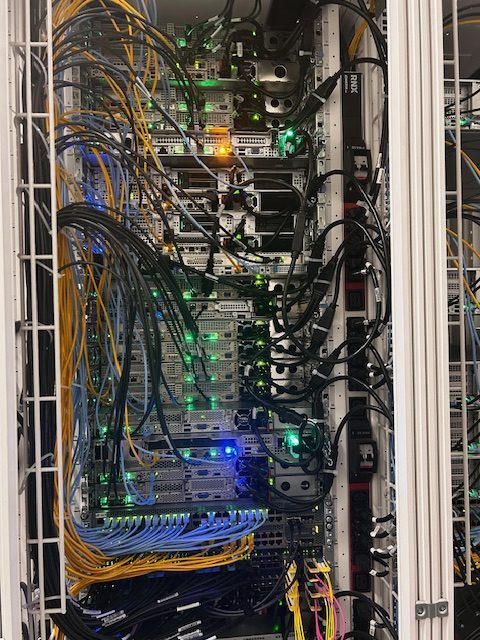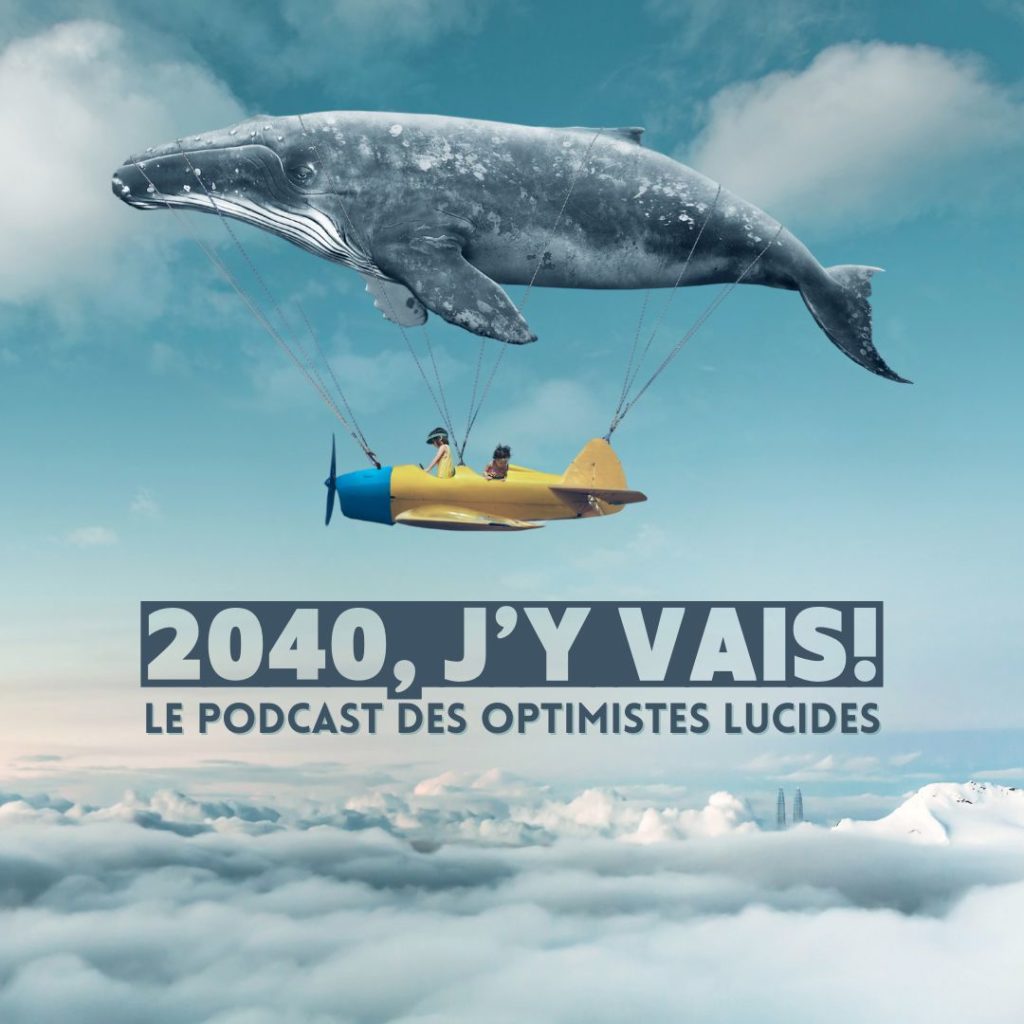On November 25, 2024, the evening event “Genève 2040: l’odyssée des entreprises vers la transition” was co-organized by the Hub des possibles, the City of Geneva, the Swiss Business Federation and APRES-GE. With over 230 people in attendance, we took a journey through time, exploring the challenges of transition, but also what we can collectively achieve.
From 2024 to 2040, the context has been difficult, but as Alfonso Gomez, Administrative Councillor of the City of Geneva, pointed out, individual and collective decisions, and the actions of citizens and businesses have enabled us to build resilience. In this respect, it has been fundamental to integrate sustainable practices into urban policies to guarantee a better future for future generations.
But let’s go back to the beginning….
🌍 The consequences of global warming in 2040
Chantal Peyer reports on the past few years…. In Geneva, in 2040, it will be two degrees warmer and the consequences of this warming will be felt: floods and landslides will multiply, alternating with periods of drought. In Valais and Ticino, insurers have decided to suspend benefits from 2031, due to the excessive cost of natural disasters. This decision has caused an uproar, but the insurers are not backing down.
In 2034, there’s a heatwave. In Asia, the combination of heat and humidity made temperatures of 45 degrees unbearable for the human body. People living in these regions could no longer break a sweat. We’ve known it for years: heat can be lethal. Now it has become a dramatic reality in India and Pakistan, with thousands of deaths. In Europe, too, the heatwave was the worst on record.
The shock of this new heatwave marked a turning point at international level, which took shape at COP 39 in Amsterdam.
Strong measures were taken at COP 39. These include:
– a ban on the sale of combustion-powered cars, also in the USA, China and India
– the abolition of short-haul flights, such as flights within Europe and private jets
– the relocation of certain industries, such as the textile industry
– finally, a massive support plan for eco-design and the circular economy.
In Geneva, too, the heatwave was keenly felt in 2034. Let’s not forget that Geneva is the most densely populated city in Switzerland.
However, plans to plant roofs and school playgrounds, and to remove waterproofing from soils, limited the effects of heat islands. The micro-forests also fulfilled their cooling function. In addition, the city was able to activate its adaptation plans by providing free swimming areas, promoting access to air-conditioned facilities and offering personalized support to vulnerable people.
💡And what about entrepreneurship in 2040?
🔸 Lawyers are systematically advising their clients to deploy their business models within planetary limits, and the crime of ecocide is now recognized, as Sandrine Giroud explained.
🔸The boards of major corporations have fully integrated ecological and social issues into their accounting and remuneration models. And they are investing in innovations that reduce CO2 emissions, as François Rohrbach described.
🔸The world of luxury goods, meanwhile, has been transformed. Diamonds, the import of which has been banned in Europe, have been replaced by natural, eco-designed materials, as Nicolas Freudiger of ID Genève Watches reminded us.
🌿And how will Geneva’s municipal authorities measure up in 2040?
🔸The mon entreprises durable program has supported the transition of many SMEs.
🔸The circular economy and eco-design are supported by innovation clusters and university chairs that attract researchers from all over the world.
🔸The greening of roofs and schoolyards, the development of micro-forests and the removal of water from soils have helped to re-green the city.
🔸Soil-regenerating farming techniques and large-scale IP and organic farming, in collaboration with farmers, have promoted local, seasonal food.
What’s clear is that the solutions exist today, and that it’s up to us to act, together, for a resilient future!
🎥To watch the entire conference: “Genève 2040: l’odyssée des entreprises vers le climat” (in French)
👉To find out more: here’s some content linked to the event
Deploy your strategy and embark on a journey towards sustainability: download the kit
Immerse yourself in the evening’s content by clicking below : download the presentation
Relive the event’s highlights in pictures: download the evening’s photos
❓To find out more about the organizers, click here.
Discover the City of Geneva’s projects: Visit the City of Geneva website to find out more about its vision of a sustainable and inclusive city.
Participate in the “Mon Entreprise Durable” program: Geneva entrepreneurs, sign up now and benefit from 50% co-financing to integrate ESG practices into your business.
Join the Swiss Business Federation: become part of a dynamic network of companies committed to sustainable development. Become a member and take an active part in our positions, while benefiting from exclusive services.
Explore innovative solutions for a sustainable future : become a member of the Hub of Possibilities and discover creative initiatives that are transforming our future.
Discover the social economy in Geneva : Join APRÈS-GE and take part in a movement that is reinventing the economy to serve society.




